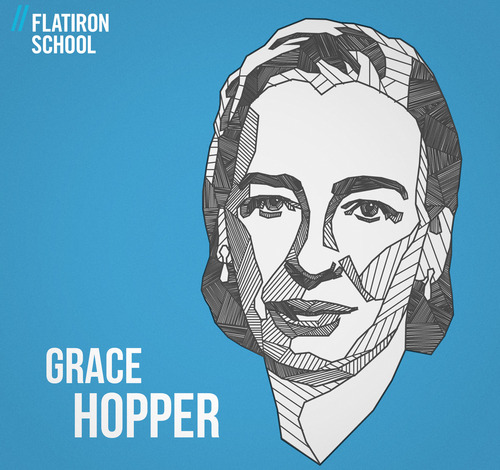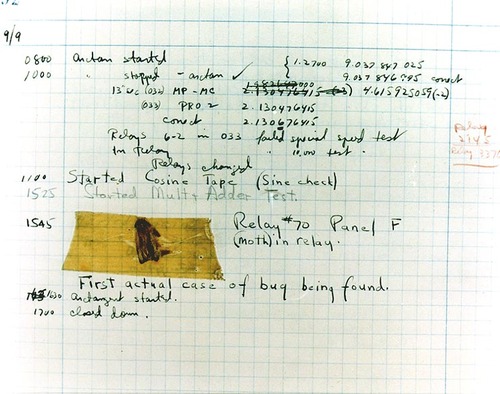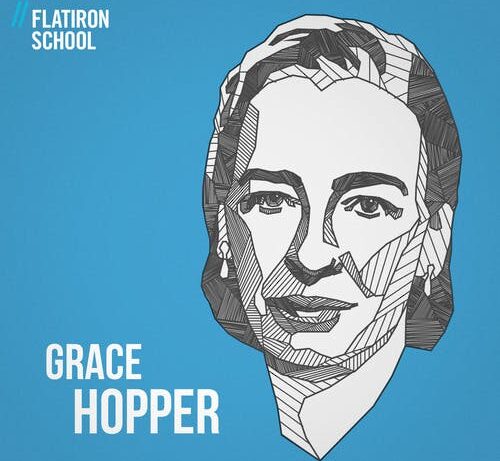This post originally appeared on December 29, 2014.

United States rear admiral, naval destroyer, mathematician, and irreverent speech-maker, Grace Hopper had a career in computer science that spanned more than sixty years and still impacts us today. Because of her contributions to programming languages, software development, and code puns, she is a staple in Flatiron School lectures. Here are three more reasons why Grace Hopper is one of our favorite computer scientists.
1. She made programming languages possible
More specifically, she made it possible for computers to process words when she invented the first compiler—a set of instructions that translated symbolic mathematical code into machine language. Although a later version of her compiler was widely adopted, Hopper’s new technology was initially a hard sell. As she put it, “I had a running compiler and nobody would touch it… they carefully told me computers could only do arithmetic. They could not do programs” A few years later, Hopper developed the FLOW-MATIC language. It was not only the first compiler-based language but also the first English-like processing language. It originated from Hopper’s belief that data-processing problems could be expressed in English keywords rather than numbers or machine code. Hopper and a team of experts later extended the FLOW-MATIC into COBOL (Common Business-Oriented Language)—a language that is still around and ubiquitous today.
2. She won the first Computer Sciences Man of the Year Award
The Data Processing Management Association was likely better at data processing management than they were at naming awards. In 1969, Hopper was the first person (and the first woman) to win their Computer Sciences Man of the Year Award. The following year, she won another award for “her pioneering work and leadership… in the development and acceptance of English-language, problem-oriented programming” and for her work in educating and training people for careers in computer science.
3. She was the best Letterman guest ever
4. She did not coin the term “bug.” She did catch an actual bug
People often credit Hopper with coining the terms “debugging” and “bug” to describe a glitch in a computer program. This is actually not true—the term dates back at least to the 1800s when Thomas Edison used it. To her credit, Hopper did stop an actual bug from breaking a computer. When her team had to remove a moth from the Mark II Computer, they at the very least gave new meaning to the word “debugging.” Hopper saved the moth with a note, “first actual case of bug being found.”

Hopper didn’t coin “debugging,” but she might have come up with the popular saying, “it’s easier to ask for forgiveness than it is to ask for permission” when she started public speaking and lecturing on the early days of computing. Even if she didn’t, the saying still seems appropriate. She was one of the first women in the U.S. to get a PhD in mathematics in a time when computer programming had only just become possible. She may have had to ask for some forgiveness to make such an enormous impact on the military, education, and computer science.Read more Code History Lessons. Grace Hopper art by Flatiron Instructor Mitch Boyer.




